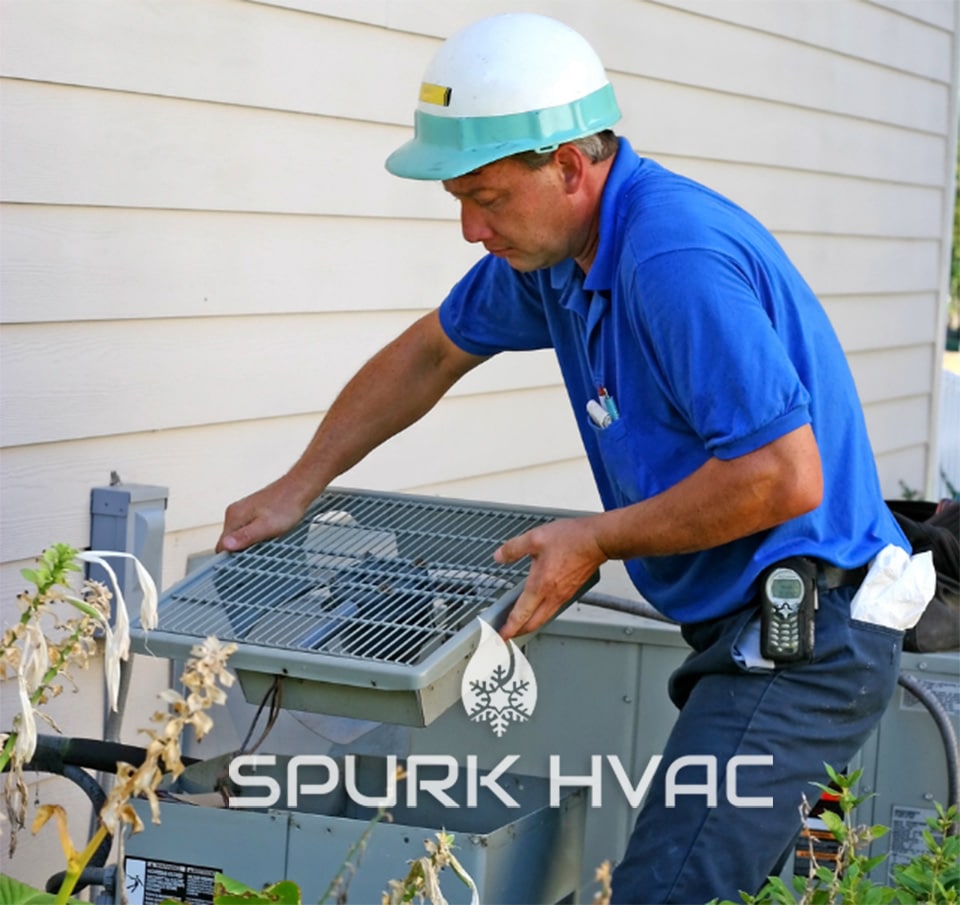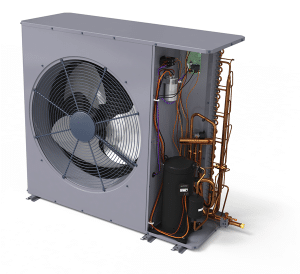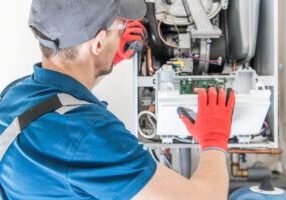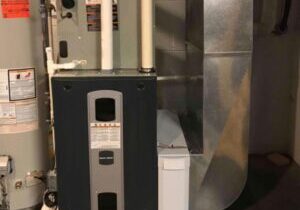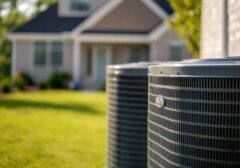Heat pumps and gas furnaces are both popular options for heating a home. But they work in very different ways, and each have their own pros and cons. C’mon Watson, let’s debunk these eight myths about heat pumps vs. gas furnaces and gather the facts so you can decide which heating system is the best option for you.
MYTHS OF A HEAT PUMP VS. GAS FURNACE
There are a lot (seriously, A LOT) of opinions out there on installing a heat pump vs. installing a gas furnace. You need facts when making a decision like this.. Here are the top eight myths, and the truth behind them, of installing a heat pump vs. gas furnace so you can make an educated decision.
Myth #1 – A gas furnace is always the best way to heat a home
A gas furnace is not always the best way to heat a home. If you do not have gas lines leading to your home, then a gas furnace cannot be installed. They can also produce extremely hot heat, which means that the temperature in your home can quickly reach the setting on your thermostat. This can leave cold spots around your home and cause dry skin.
Gas furnaces may provide overpowering heat when the temperatures outside are between 40 and 60 degrees. A gas furnace also produces CO, which can be a threat if not installed properly, monitored and inspected. Which is why you should always have a professional install crew from Spurk HVAC on the job.
Heat pumps can actually be a better choice in certain regions, such as the South, where winters are milder. In areas that do not experience temperatures below freezing, a heat pump consumes less energy and can be more efficient than a furnace.
Myth #2 – A heat pump is the same as an air conditioner
While a heat pump works similarly to an air conditioner, a heat pump is not the same as an air conditioner. An air conditioner takes the hot air inside your home and pumps it outside your home. A heat pump takes the warm air outside of your home and pumps it inside of your home.
When the heat pump pulls the hot air from outside your home, it moves the air into an air handler that is on the inside unit of your home. The air handler has a coil and heat strips inside of it. As the air handler moves the air over the coil, it heats the air, and then a fan inside the air handler blows the warm air through the vents of your home.
Myth #3 – Heat pumps don’t heat your home as well as gas furnaces
A heat pump is an effective way to heat homes in many areas, but especially those located in the southeastern United States. In more moderate climates, like those in the South, the cost savings for natural gas might not be as much as in colder climates, such as Pittsburgh, which experiences much colder temperatures during the fall and winter months. That’s not to say, however, that a heat pump would be a bad choice for you. It could greatly depend on what type of winter we have and other factors mentioned in Myth #4.
Myth #4 – Gas furnaces are always more efficient than heat pumps
Gas is cheaper than electricity in most cases, which makes furnaces more cost-effective than electric heat pumps in areas that experience colder temperatures. Gas furnaces are not always more efficient than heat pumps, however.
For states that experience cooler temperatures (40-60 degrees) but not colder temperatures (below 40 degrees), a heat pump can be more efficient and cost-effective. Other factors include the size of your home, utilities available, your preferred temperature, and more.
Myth #5 – A gas furnace is cheaper than a heat pump
It can be cheaper to heat a home with natural gas in a colder region but not in a warmer region. The upfront cost for installing a heat pump is usually cheaper than the cost to install a furnace. Also, if you don’t have natural gas lines running to your home, you have to have the gas lines installed in order to use a gas furnace, and this can be extremely expensive.
Myth #6 – There is only one type of heat pump
There are three types of heat pumps: air-to-air, ductless mini-split and geothermal. The air-to-air heat pump is the most common type of heat pump and works by moving the warm outside air to the inside of your home. A ductless, mini-split heat pump is similar to a window air conditioner. It is a smaller air-source unit with an outdoor compressor/condenser and an indoor air-handling unit.
Myth #7 – Carbon monoxide is a risk with both gas furnaces and heat pumps
Gas furnaces do produce CO, which can be harmful. As long as gas furnaces are installed correctly, regularly monitored and inspected, gas furnaces are safe. Heat pumps, however, do not require regular monitoring and inspections. Since they do not use combustion to create heat, like gas furnaces do, they do not create any CO. With that being said, we still highly recommend regular planned maintenance on your heat pump unit.
Myth #8 – Gas furnaces produce more heat
Technically, gas furnaces produce more heat than heat pumps. Extremely hot air is not always a good thing, though. The extremely hot air that gas furnaces produce can cause your skin to dry out in the winter and can actually produce higher temperatures than you need, wasting energy.
About Spurk HVAC
Spurk HVAC was formed in 2018 and is located in Warrendale, Pennsylvania. We proudly serve Cranberry Twp., Wexford, Gibsonia, Mars, and the surrounding areas. We are an American Standard Customer Care Dealer and a Mitsubishi Diamond Contractor. We service all makes and models. Please contact us if you are seeking heating repair, heating system replacement, air conditioner repair, air conditioning maintenance, air conditioning replacement, or any other heating & cooling services. Whether you are looking for residential or commercial HVAC services, we look forward to any and all opportunities to become your preferred HVAC contractor.



